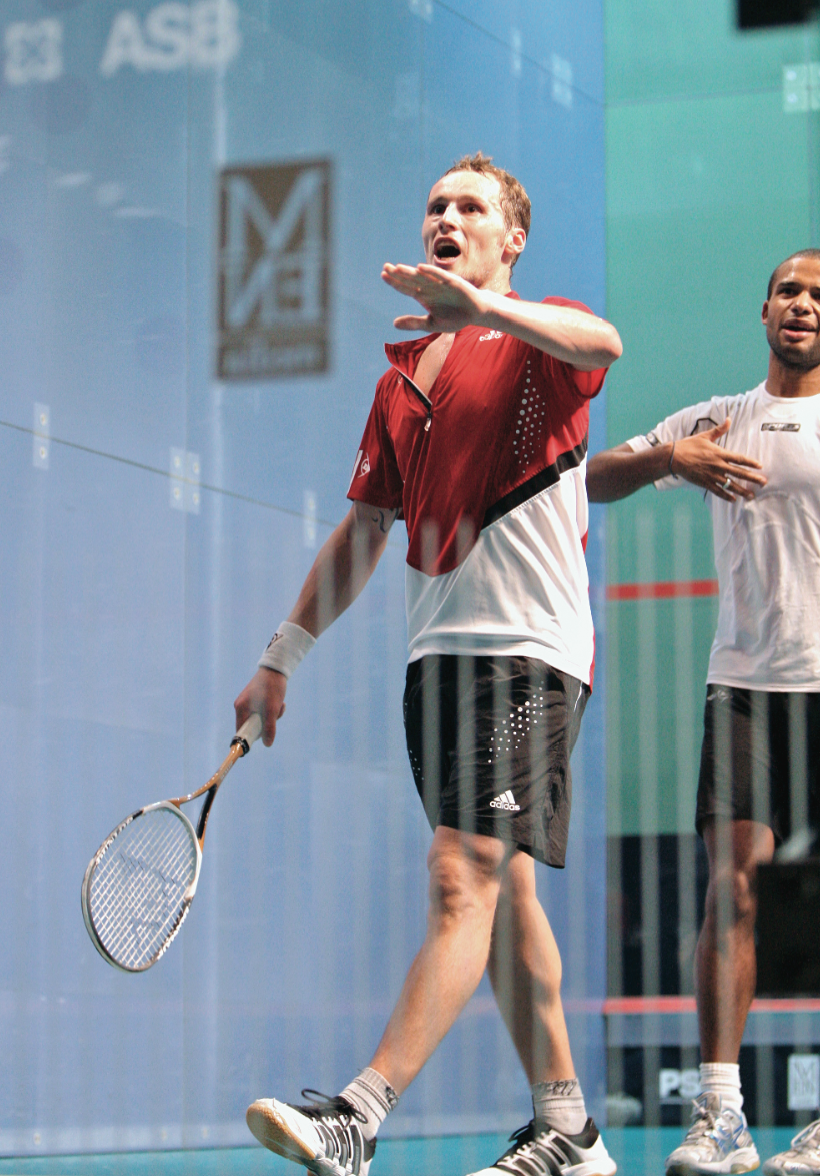By Rod Symington
A recent e-mail to Squash Magazine dealt with issues that arose during the Final of a PSA Event in September 2008 in Baltimore, MD.
The correspondent raised some important issues. A sport such as squash that is striving to be accepted into the 2016 Olympics must, as a first priority, bear in mind that the Olympics are, above all, about image—a clean image. Unfortunately, the players have yet to realize this, and the Professional Squash Association has failed miserably to stamp out the kind of behavior the correspondent describes.
In Olympic competition dissent from a referee’s or judge’s decisions is simply not tolerated. If it occurs, the yellow card is shown immediately. Whatever Olympic event you watch, you rarely see bad conduct. Members of the International Olympic Committee who have been invited to observe major events in squash, going as far back as 2002, have repeatedly raised the issue of poor player conduct in squash. But squash players continue to misbehave all over the world.

In October 2008 the Men’s and Women’s World Opens were held in Manchester, England, and three members of the IOC were invited to the last two days of competition. The aim was to impress upon them that squash deserves to be admitted as an Olympic sport in 2016. Before the event, all the players and officials received a letter from Jahangir Khan, President of the WSF, stressing the importance of putting on a good show and asking the players to be on their best behavior and the referees to curtail player dissent.
In addition, the new Chief Operating Officer of the PSA, Alex Gough, underscored in the players’ meeting the need to behave appropriately on court, especially in front of the IOC delegates. Did these requests have any effect? Yes and no.
Most professional squash players are well-behaved (the women are virtually angels)—and for the most part the behavior of players in Manchester was good and they are a credit to the sport. At the top level there is a handful of players who seem incapable of behaving appropriately, whether whining, being unreasonable or incorrigible on court. These players, and a few others, have repeatedly damaged the image of professional squash, and their professional association (PSA) has repeatedly failed to temper their behavior.
In team sports the good of the team comes first, and any action that hurts the team is frowned upon by all the other members. But in an individual sport, such as squash, the individual hurts only himself by his bad conduct. Or does he? Does he not also hurt all the other members of the “team,” that is: all those who play squash, not only in the PSA, but also in the wider sphere of the sport? As the e-mail above points out, these players are inevitably the role-models for all young athletes, and their behavior also has an effect on how younger players conduct themselves on court.
In a huge upset in Manchester, Adrian Grant (England) defeated the second seed Gregory Gaultier (France)—and the latter not only blamed the referees right after the match for his poor performance, but a half an hour later he stormed up to the Referees’ Room (on the second floor) and berated the assembled referees that the match had been a “steetch-up” (Cockney slang with a French accent): He claimed that the three Referees from Scotland, Wales, and England had ganged up to guarantee his defeat. It was an astonishing scene, an outrageous accusation, and unique in my experience. The question naturally arises: What action will the PSA take against this behavior by Gaultier? A slap on the wrist (a small fine— the usual punishment) will merely condone the behavior. Nothing less than a lengthy suspension would be appropriate.
There were a few other examples of bad conduct, and even the new world champion, the hugely talented Ramy Ashour, threw a few tantrums during the Final. Will these players ever learn that they are shooting themselves in the foot by indulging in such behavior? Their egocentric actions are not entertaining and their selfish behavior hurts both the growth of the PSA Tour and everyone who loves the sport.
I often hear the argument that the referees have the power under the Rules to penalize bad conduct, and that if it continues, the referees are to blame. There is merit to this argument—and referees do need to get tougher and send the right message. But there would be no message to send if the players who misbehave would simply grow up and play the game in the correct spirit. More important: Will the PSA Board ever wake up, too, and declare a “zero tolerance” policy for those players who are damaging the sport’s image—and issue a schedule of heavy mandatory punishments for all transgressions?
From the point of view of presentation, the World Opens in Manchester were the best squash event I have ever experienced: The facility was the best ever, the organization impeccable, and the entire staging was professional in every respect. It is a pity that not all the players responded in like manner.


